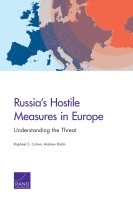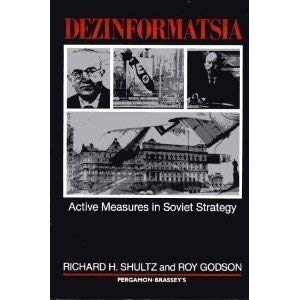 Russia has used a wide range of hostile measures — political, economic, diplomatic, intelligence, and military activities — to expand its influence and undermine governments across the European continent, note RAND Corporation analysts Raphael S. Cohen and Andrew Radin. And yet, for all the attention paid to the subject, there remains a basic paradox in Russia’s actions, say the authors of the recently released report, Russia’s Hostile Measures in Europe: Understanding the Threat. On the one hand, Russia’s actions are widespread and sophisticated, employing a varied toolset to differing degrees depending on local circumstances. On the other, in most of Europe, the results so far have been lackluster at best, they write for War On The Rocks.
Russia has used a wide range of hostile measures — political, economic, diplomatic, intelligence, and military activities — to expand its influence and undermine governments across the European continent, note RAND Corporation analysts Raphael S. Cohen and Andrew Radin. And yet, for all the attention paid to the subject, there remains a basic paradox in Russia’s actions, say the authors of the recently released report, Russia’s Hostile Measures in Europe: Understanding the Threat. On the one hand, Russia’s actions are widespread and sophisticated, employing a varied toolset to differing degrees depending on local circumstances. On the other, in most of Europe, the results so far have been lackluster at best, they write for War On The Rocks.
There are two keys to unraveling this enigma, they suggest:
- First, Russia faces a structural problem: Its leverage tends to be greatest in countries in its near abroad, and not necessarily in those countries best positioned to accomplish Russia’s other key foreign priorities of changing the overall bent of Western policy, undermining institutions like the European Union and NATO or promoting its vision of itself as a great power.
- Second, because its hostile measures are unpredictable and generally unlikely to succeed, Russia has adopted a “soft strategy” for employing these measures, using a wide array of tactics without a clear picture of how they will ultimately serve its interests.
“One broad solution to Russian hostile measures could be to address the vulnerabilities they target, such as measures to strengthen the rule of law, diminish ethnic tension, enhance cyber security, and create resilience to information campaigns,” they add. “Responding to every Russian attempt may be wasteful, given that not all are likely to succeed. Rather, the United States and the West could concentrate their resources on the most vulnerable countries and on the few measures that do resonate with targeted publics.” RTWT
After a hearing on the rise of authoritarianism in Russia, China and elsewhere, Representative Adam B. Schiff, the California Democrat who leads the House Intelligence Committee, said Russian efforts to interfere in elections were continuing, the New York Times adds.
“There is a prioritized part of the Russian agenda to not just interfere in our democracy but interfere in democracies in Europe,” Mr. Schiff said. “They are pushing their authoritarian model to undermine institutions that reinforce democracy.”







